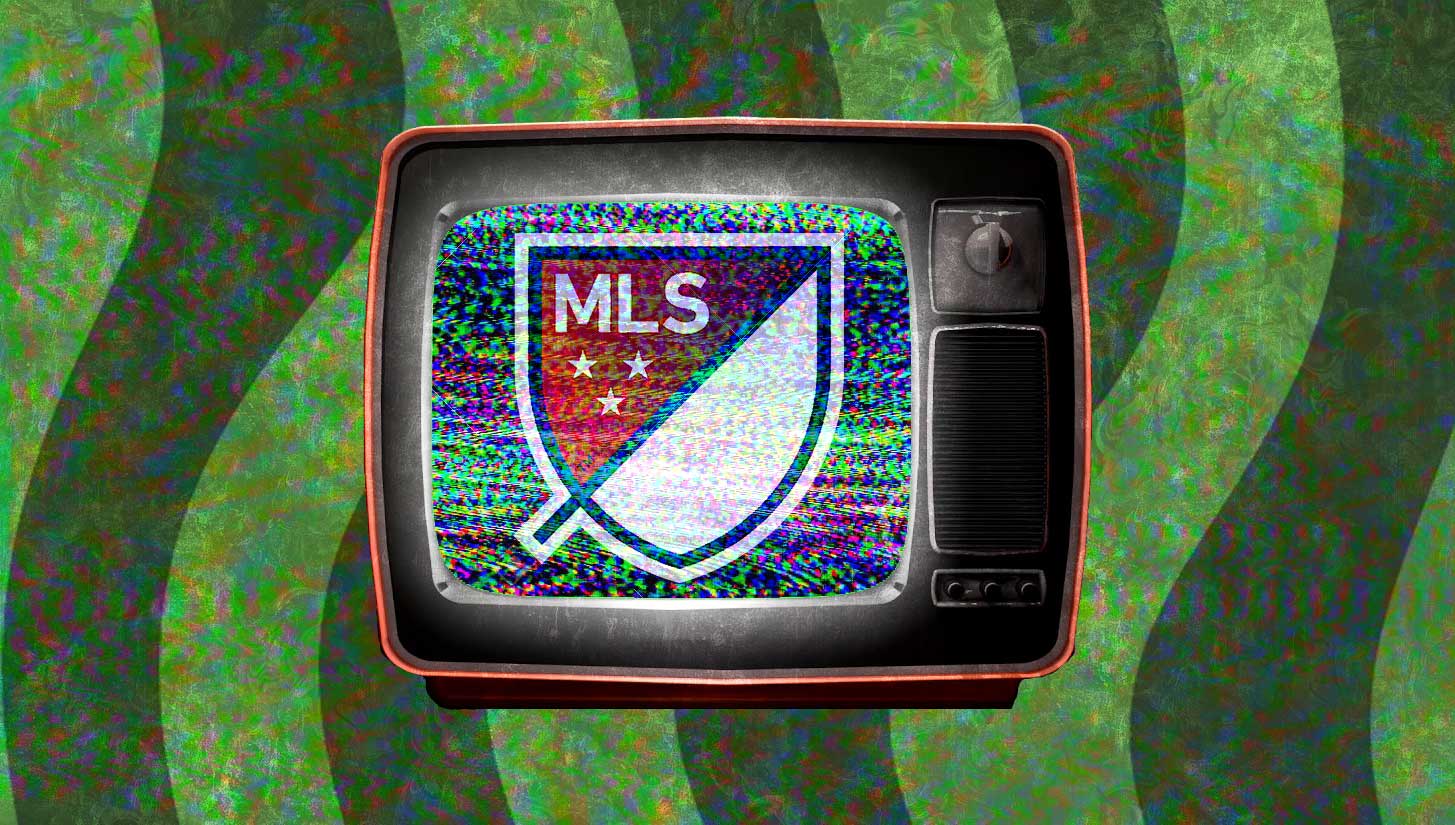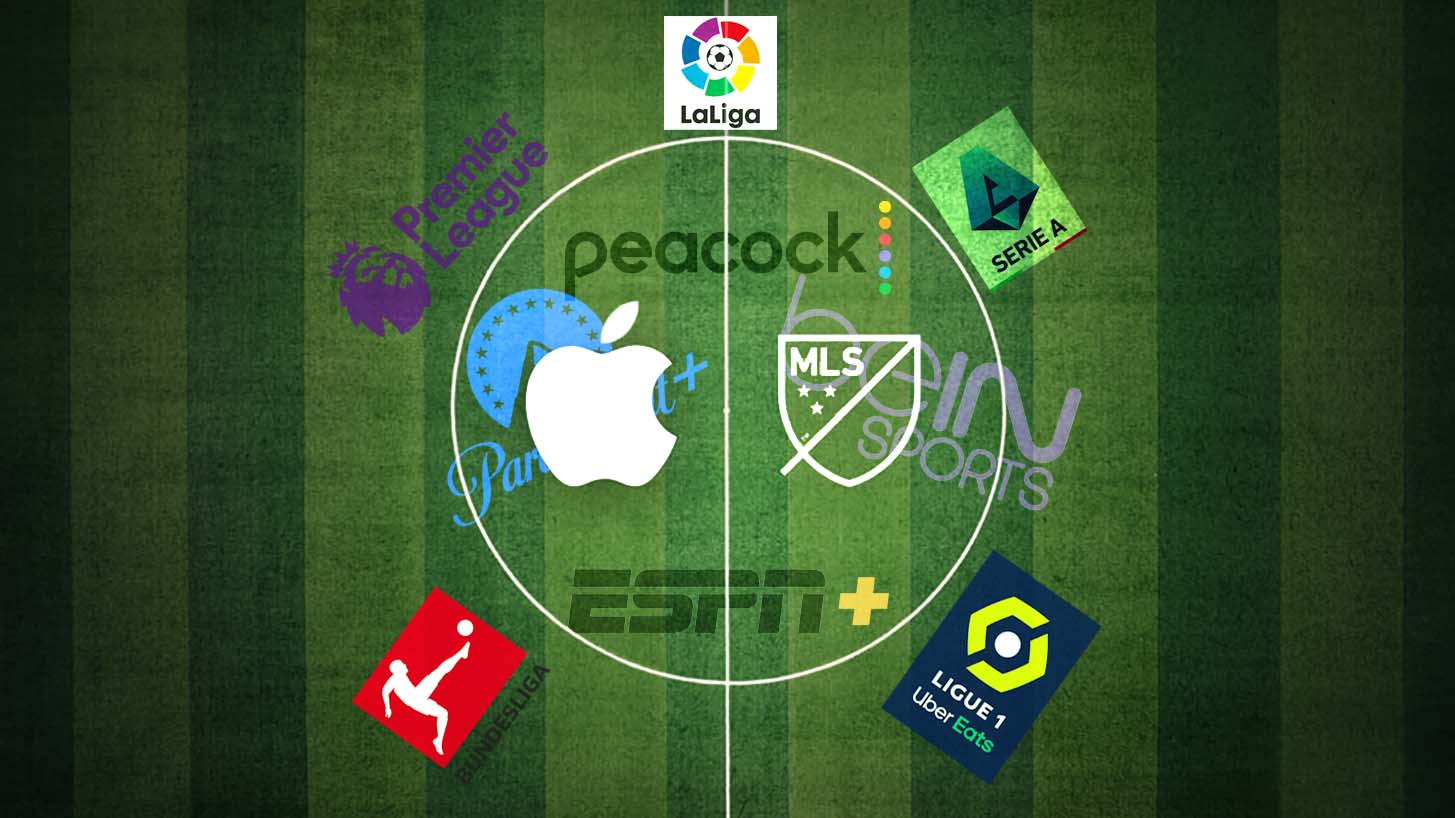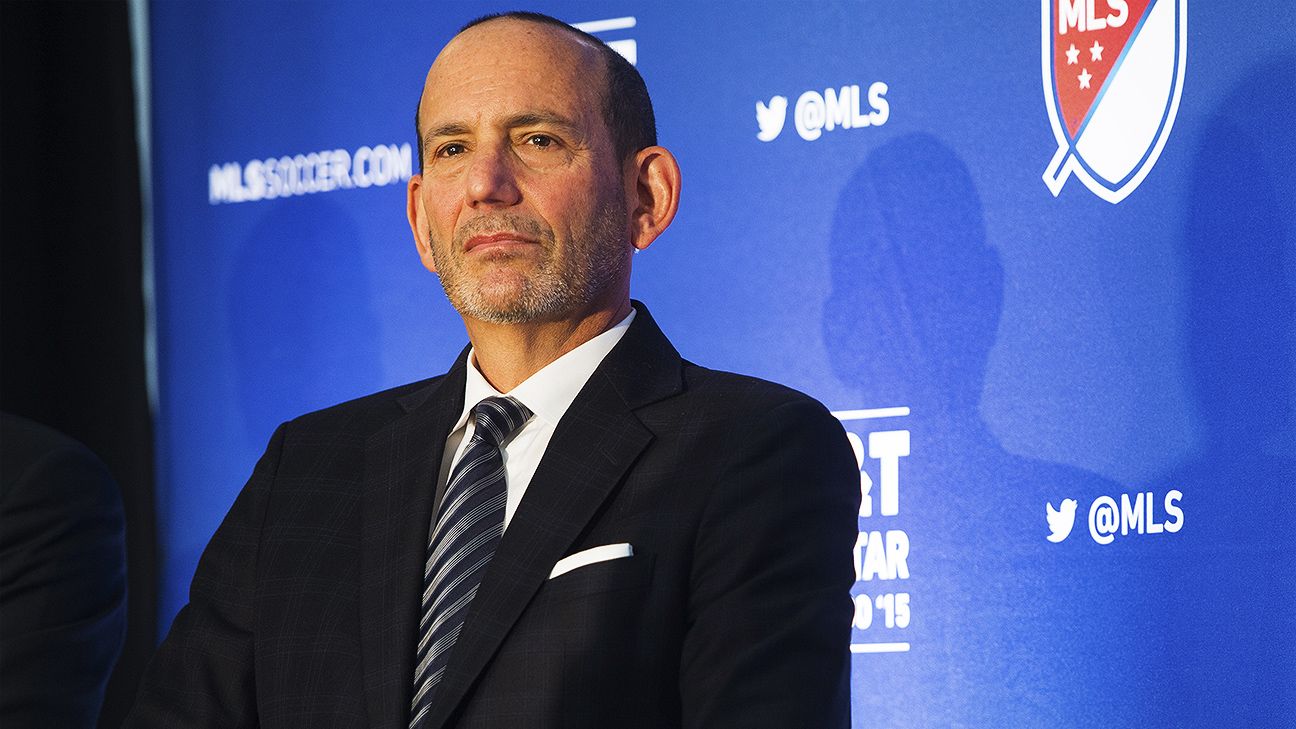Don Garber recently signed a contract extension with Major League Soccer, keeping him as commissioner of the league until 2027. This move made sense given the upcoming FIFA World Cup and the need to address the Collective Bargaining Agreement in the coming years — yet questions remain about what MLS needs from their top executive moving forward, especially on the television front.
Don Garber is here to stay for the foreseeable future. Now 67 years old, he is one of pro sports’ longest-serving commissioners and, over time, the former NFL marketing executive has become one of the most respected figures in the soccer world. Not bad for a guy from Queens who in 1999 was handed a league that was desperately trying to stay afloat.
If you were gambling on MLS back then, most conventional soccer betting tips would advise you to bet against the league’s survival. But Garber, to use a pun from his NFL days, took the ball and ran with it. He oversaw some very challenging years as MLS faced the possibility of shutting down, yet persevered and helped create what’s now a thriving league by most accounts.
#OnThisDay in 1999, Don Garber was named Commissioner of MLS. Happy 21st anniversary, @thesoccerdon! pic.twitter.com/W2EtM2PdWb
— Major League Soccer (@MLS) August 4, 2020
During Garber’s tenure, the league went from the brink of oblivion, to a 2002 World Cup performance from the United States men’s national team that renewed investor confidence, to the signing of David Beckham, and an explosion of growth from 10 clubs in 2004 to 30 by 2025. All while building stadiums and signing superstars in between.
Garber has overseen the arrivals of Beckham, Thierry Henry, Robbie Keane, Carlos Vela, Zlatan Ibrahimović, and, of course, Lionel Messi, who has captivated the world.
Today, MLS boasts being the second-highest-attended league in the world, and Inter Miami’s kit is one of the top-selling items in all of soccer. While MLS has faced challenges, such as the potential relocation of the Columbus Crew and pulling out of the U.S. Open Cup, Garber has navigated them cautiously, and while he has his fair share of detractors, on paper, his resume reads quite impressively — there have been far more successes than failures.
The league has never locked out its players and there have been virtually no major scandals. However, Garber’s biggest challenge remains answering the age-old question: How can MLS become more relevant to the masses?
While MLS has succeeded in becoming relevant at the local level, the league still struggles to break into major national conversations. It is still on the periphery of “major” U.S. sports, despite boasting solid numbers. MLS has yet to establish a consistent presence in mainstream sports media, with the majority of coverage coming from soccer-specific programming rather than general sports shows like ESPN’s First Take.
It’s not also fully permeated into pop culture as well, as Messi has avoided media attention in the U.S. In comparison, Ibrahimovic, who has been out of the league for five years now, seems like he’s had more mainstream TV appearances this year than any current MLS player.
The Tale of the Tape of MLS’ Apple TV Deal

Debating whether MLS made the right decision to sign with Apple TV to carry virtually every MLS match is now a moot point. The league signed a deal that will keep it on the platform through at least the 2030 FIFA World Cup. Nearly two World Cup cycles will see the league on Apple TV, and while the financial figures are certainly eye-opening, the league has lost valuable mainstream exposure from the traditional major sports networks, who reduce MLS coverage to pundit shows that speak to a soccer audience MLS already has.
Garber declines to share the Apple TV subscription numbers, but says “we’re very pleased with the numbers… We have over a million viewers watching those games on a Saturday night. That’s more than we’ve ever had watching a regular season match.”
— Ben Wright (@benwright) December 6, 2024
Still, Garber did offer some interesting insights during the week leading up to the MLS Cup in Los Angeles about the data the league has gathered since the Apple TV deal began. According to Garber, both MLS and Apple are “pleased” with the subscription numbers, but more importantly, MLS’ audience is 75% under the age of 44, making it the youngest audience of any pro league in the United States.
Garber also mentioned that MLS subscribers watch an average of 65 minutes of a game, which is impressive, especially considering some fans may be watching on a mobile device.
Garber did note that on a good weekend, MLS on Apple TV attracts around 1 million viewers. However, he did not specify which games attracted the viewers. If 12 league games are played on a given weekend, this would average 83,000 viewers per match. It seems that MLS may be counting the overall audience across its games rather than using ratings from ESPN’s 2022 report.
MLS’ final rating for ESPN in 2022 averaged 343,000 viewers, with the MLS Cup that year attracting an average of over 2.1 million viewers across the English broadcast on FOX and the Spanish-language coverage on Univision, making it the most-watched MLS championship game since 1997, which aired on ABC.
Still, for Christopher Harris of World Soccer Talk, MLS’ TV struggles are often used as a scapegoat.
“It’s been on NBC, it’s been on ABC, it’s been on FOX, it’s been on ESPN, it’s been on FS1, Univision — it’s been on every single television network, different days of the week,” Harris said. “Every day of the week, it’s been on. It’s been in the mornings with the MLS is Back tournament. It’s been in the afternoons, in the evenings, and late-night. And the only television provider that hasn’t televised MLS games out of all the different networks, major networks, is CBS. And that’s the only one that came late into soccer in the last eight years. But before then, they were pretty much invisible.
“So I think it’s not a TV problem, I think it’s an MLS problem. And what I think personally is you have to give me a reason as a soccer fan to watch MLS. Like, why should I watch MLS over a Premier League game, or a Bundesliga game, or Serie A game, or Liga MX game? I think that’s the issue. MLS needs and has needed to do a better job telling its story, making people care at a mainstream level.”
Soccer: Too Niche to Be Big?

Soccer is one of the most popular sports in the United States in terms of participation and fandom. However, it is also highly fragmented. Fans of MLS, top European leagues, and South American teams all watch soccer on the weekends, meaning millions of people in the U.S. are watching soccer. The issue lies in centralizing those viewers, a tall order. Unlike the NBA or NFL, soccer is not confined to a singular league, and the wide array of matches and options have separated the number of viewers.
The numbers alone are attractive to networks and streaming services in search of compelling content to add to their portfolios, but the fragmented nature of football fans makes it so they aren’t in direct competition with traditional American sports. Soccer is big enough to meet broadcasting needs, yet niche enough to not “bother” the big boys.
The sport’s absence from major pundit shows across all networks is another challenge. While the days of outright bashing soccer are behind us, the sport has yet to break through as a consistent topic on influential sports shows. For Harris, this remains a significant hurdle.
“The tricky part for me is I don’t see that ever happening,” Harris said. “And because you look at the Premier League, you look at any of the leagues, it’s not that they’re not talking about MLS, but they’re just not talking about soccer unless it’s the World Cup.”
The World Cup is really the only time in the United States when the collective soccer audience congregates in one place. The 64 matches of the 2022 FIFA World Cup garnered an average of nearly 3.59 million viewers on FOX, reflecting a 30% increase in viewership compared to the 2018 tournament. The World Cup final between France and Argentina attracted 25.8 million viewers — a landmark number for the sport. However, the Super Bowl that same season earned 113 million viewers.
Tapping into that audience will be key for MLS post-2026, but now MLS and Apple face a major challenge: How do they convert the average soccer fan into an MLS fan, and convince them to pay to watch the league on Apple TV when they just saw the World Cup for “free?”
Don Garber Saved MLS, But the Next Person Needs to Tell MLS’ Story At a Massive Scale

When all is said and done, Garber will be regarded as one of the most important sports executives of all time — a person who inherited a league that was DOA and somehow, against all odds, managed to make it not just survive, but thrive.
But like all great sports teams, a star player can only take you so far. Eventually, you need to think about the future, and the next commissioner — whether he or she as Garber alluded to in his State of the League address — will need to take MLS to the next level.
That new commissioner will likely need to be an executive with a proven track record in television viewership and the ever-changing landscape of digital streaming services. This is someone who can truly tell MLS’ story to the masses and, most importantly, make people care about watching MLS games.
For nearly 30 years, the league has tried big stars, local talents, and various strategies to attract fans. While the league has moved beyond survival mode and is thriving in almost every area except television, Garber’s re-signing will give the league’s owners ample time to consider their next steps.
It’s time to move MLS from niche to mainstream once and for all. In order to do that, that executive can’t think soccer, they will need to think television.








